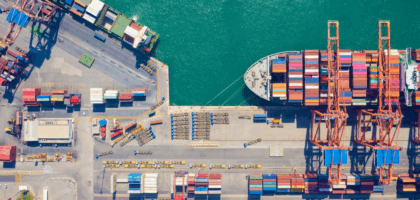The British Parliament is currently considering passage of “The Internal Market Bill,” which creates powers to override part of the withdrawal treaty signed with the EU Parliament in breach of international law. Despite a warning from Brussels that doing so would be harmful to as-yet incomplete negotiations, Parliament is moving forward with discussions.
Background
On March 29, 2017, Prime Minister Theresa May triggered Article 50 of the Lisbon Treaty and formally declared the UK’s intention to leave the EU. This action was the beginning of a two-year period for the exit terms to be agreed upon and finalized. Ms. May began formal negotiations with the EU Parliament in July 2018 and brought the tentative agreement to British Parliament in December.
British lawmakers were immediately critical of the plan, going so far as to call for a vote of no-confidence in Ms. May. The plan included the controversial “backstop” at the Irish border which would have kept Northern Ireland temporarily in the EU single market while an alternate arrangement was negotiated. Theresa May’s proposal was defeated in Parliament three times and she eventually resigned, being replaced by Boris Johnson. More than 3 ½ years after the referendum that began the process, the terms under which the UK would leave the EU were finally approved by British Parliament and ratified by the European Parliament. The UK formally left the EU on January 31, 2020.
Current Status
The UK and EU are attempting to finalize the rules which will govern the future relationship between the UK and the EU, and negotiate a free trade agreement, but negotiations have been troubled over issues of fishing, state aid, and how trade will flow through Northern Ireland. The UK is looking to preserve border-free Irish trade, and the EU wants to ensure that prohibited goods aren’t forwarded through Ireland as a back door into the bloc. Under the Northern Ireland protocol in the January 31st agreement, Northern Ireland will continue to follow some EU rules—making border checks unnecessary. However, the arrangement will mean that certain goods arriving in Northern Ireland from other parts of the UK (England, Scotland and Wales) will need to be checked to ensure they comply with EU standards. If any taxes (tariffs) need to be paid, they will be refunded if the goods remain in Northern Ireland and there is no onward movement to the Republic of Ireland.
The UK Parliament is currently considering the Internal Market Bill, which is aimed at ensuring Britain’s four nations can trade freely with one another after leaving the European Union. The bill, however, would void the Northern Ireland protocol agreed upon with the European Parliament. The bill would give the government powers to breach parts of the Brexit withdrawal agreement, which would break international law and threatens the separation agreement as a whole.
Impact
The transition period, which began on February 1, ends on December 31, and the deadline for extending it has passed. If a new trade deal is not approved, then tariffs and border checks would be applied to UK goods travelling to the EU. With or without a deal, the UK is struggling to get infrastructure in place to handle new regulations which will be in force January 1.
Michael Gove, Minister for the Cabinet Office, has written that in a ‘reasonable worst-case scenario,’ 30-50% of trucks arriving at the port of Dover for export to the continent will not have completed the right paperwork. This disruption is predicted to lead to lines of 7,000 trucks (a full two-days’ delay) waiting for ferries. The trucking industry and other trade leaders have been requesting details of the preparations they will have to take for the last six months. “Don’t start pointing the finger of blame in our direction when you have still to provide all of the tools to do the job,” Robert Keen, director general of the British International Freight Association, said in an email. “Give our members all the information they need, and systems that actually work, and they will be more than able to do what is necessary.”
Resources:
- Brexit: All You Need to Know About the UK Leaving the EU (BBC News)
- What Happens Next with UK Plan to Breach Brexit Divorce (MSN News)
- EU Chief Negotiator Determined to Get Brexit Deal (Yahoo News)
- Get Ready for Brexit or Face 7000-Truck Queues in Kent (MSN News)
- Brexit Blame Game Ignites as Truckers Slam UK (Bloomberg)



